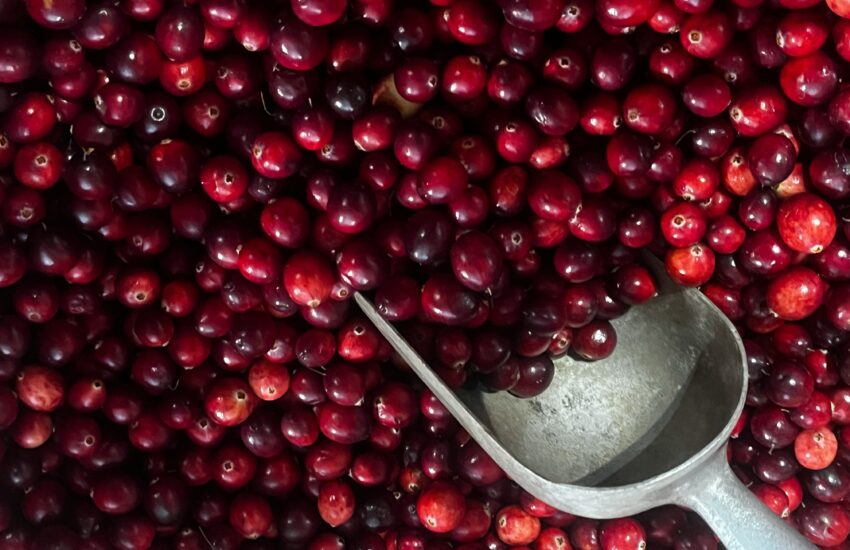As the colder months approach, the body may experience changes in appetite and metabolism, often leading to cravings for richer, more comforting foods. However, winter is also a season for a wide variety of fruits that can support healthy weight loss, providing essential nutrients without excess calories. Many winter fruits are low in calories, high in fiber, and packed with water content, which can help reduce hunger, boost metabolism, and support overall health. Including these fruits in your diet can offer delicious alternatives to heavier, higher-calorie options during the winter season. In this guide, Mohit Tandon Human Rights will explore 7 delicious winter fruits that are not only tasty but also excellent for promoting weight loss.
1. Apples: A Fiber-Rich Winter Snack
Nutritional Benefits of Apples
Apples are a classic winter fruit, often at their peak from late fall to winter. A medium-sized apple contains about 95 calories and is a great source of fiber, with approximately 4 grams per fruit. Apples are also rich in vitamin C, antioxidants, and water, which contribute to hydration and support immune health during the colder months.
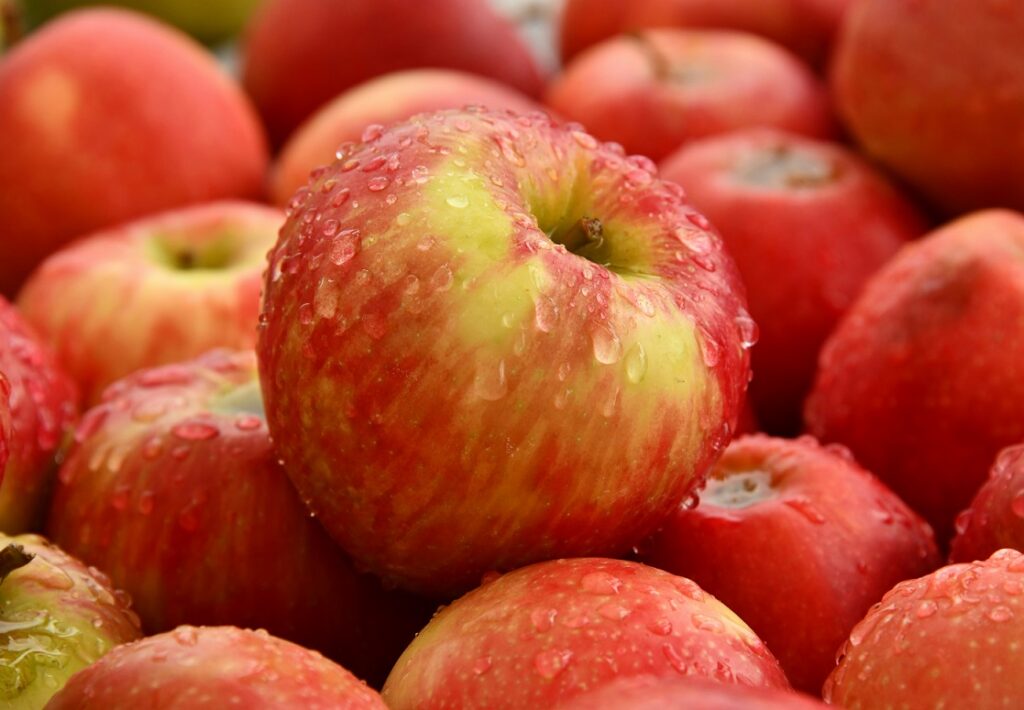
How Apples Aid in Weight Loss
The high fiber content in apples promotes feelings of fullness and slows digestion, making them an excellent snack for controlling appetite and reducing overall calorie intake. Apples also have a relatively low glycemic index, meaning they release sugar into the bloodstream slowly, which helps maintain stable blood sugar levels. This prevents spikes in insulin, reducing the likelihood of fat storage and making them a great fruit for weight loss.
Delicious Ways to Enjoy Apples
You can enjoy apples on their own, slice them into salads, or pair them with a small amount of nut butter for a satisfying snack. They can also be baked with a sprinkle of cinnamon for a warming treat.
2. Pears: Sweet, Juicy, and Filling
Nutritional Benefits of Pears
Pears are another fantastic winter fruit famous for their juicy, sweet flavor and health benefits. A medium pear contains around 100 calories and offers about 6 grams of fiber. Pears are also an excellent source of vitamin C, potassium, and antioxidants, which promote heart health and support the immune system during winter months.
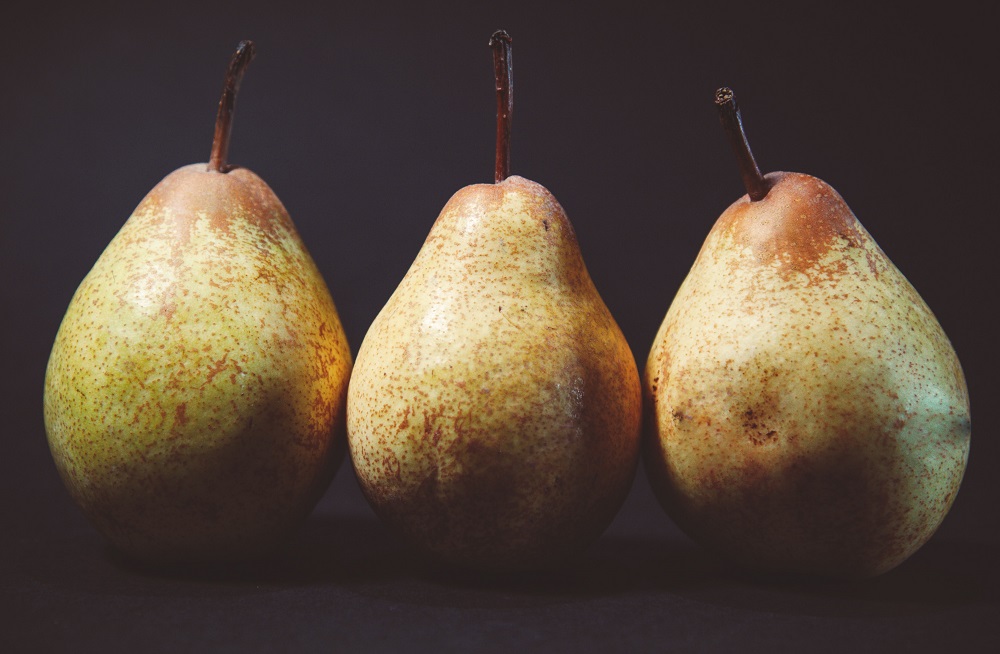
How Pears Support Weight Loss
The high fiber content in pears helps with digestion and promotes feelings of fullness, making them a great tool for managing hunger. Fiber also helps regulate blood sugar, preventing spikes that can lead to cravings and overeating. Pears have a relatively low energy density, meaning they provide fewer calories per gram, which makes them a perfect fruit for weight loss. – Mohit Tandon Human Rights
Delicious Ways to Enjoy Pears
Pears can be eaten raw, poached, or added to salads and smoothies. For a warm, comforting treat, try roasting pears with a dash of cinnamon and nutmeg for a healthy dessert.
3. Citrus Fruits: Oranges, Grapefruits, and Mandarins
Nutritional Benefits of Citrus Fruits
Citrus fruits like oranges, grapefruits, and mandarins are in season during the winter months and it contains vitamin C, fiber, and antioxidants. A medium orange contains about 62 calories, while half a grapefruit provides around 52 calories. Citrus fruits are also high in water content, which aids in hydration and supports the body’s metabolic processes.

How Citrus Fruits Aid in Weight Loss
Citrus fruits are low in calories but high in fiber, which helps to keep you full for longer periods. The high water content in citrus fruits also adds bulk to your meals, providing volume without the extra calories. Grapefruit, in particular, has been shown in some studies to help with weight loss by improving insulin sensitivity and reducing fat accumulation.
Delicious Ways to Enjoy Citrus Fruits
Citrus fruits can be eaten fresh, juiced, or added to salads, smoothies, and desserts. A grapefruit half in the morning can be a refreshing start to the day, and oranges can be enjoyed as a snack or in a fruit salad.
4. Pomegranates: Antioxidant Powerhouses
Nutritional Benefits of Pomegranates
Pomegranates are a rich source of antioxidants, vitamins, and minerals. The seeds of pomegranates are loaded with vitamin C, potassium, and fiber. A half-cup of pomegranate seeds contains about 70 calories and offers about 3-4 grams of fiber.
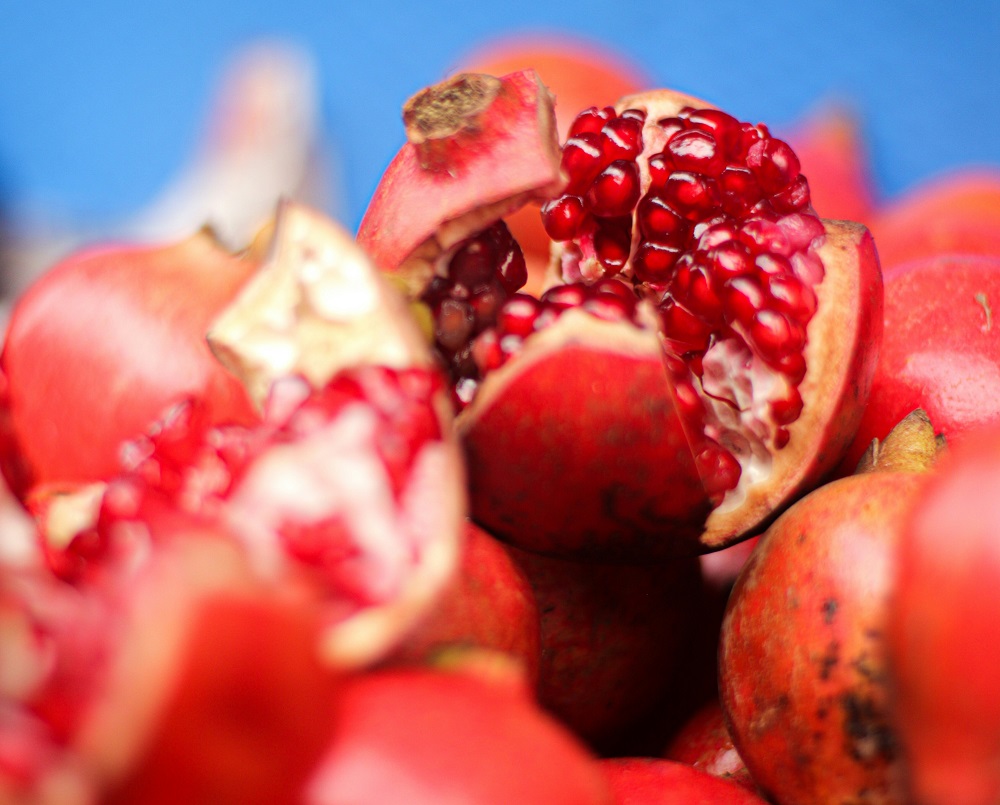
How Pomegranates Aid in Weight Loss
Pomegranates are high in water content and fiber, both of which help with digestion and keep you feeling full. The antioxidants in pomegranates, such as punicalagins and anthocyanins, also support metabolism and help reduce inflammation, a key factor in weight gain. Regular consumption of pomegranates may also help regulate blood sugar levels and improve fat metabolism, making them a great addition to a weight loss diet.
Delicious Ways to Enjoy Pomegranates
The seeds of pomegranates can be eaten fresh or sprinkled over yogurt, oatmeal, or salads for added crunch and flavor. Pomegranate juice, without added sugar, is another delicious option for reaping its benefits.
5. Cranberries: Tart and Nutritious
Nutritional Benefits of Cranberries
Cranberries are commonly associated with winter and holiday season dishes. These berries are low in calories but high in vitamin C, fiber, and antioxidants. A half-cup of fresh cranberries contains about 25 calories and offers 2 grams of fiber.

How Cranberries Support Weight Loss
Cranberries contian antioxidants, particularly flavonoids, that help reduce inflammation and oxidative stress. Inflammation can contribute to weight gain, so consuming anti-inflammatory foods like cranberries may help reduce this effect. Additionally, cranberries are low in sugar and rich in fiber, which helps promote fullness and manage hunger. – Mohit Tandon Human Rights
Delicious Ways to Enjoy Cranberries
Fresh cranberries can be added to smoothies, salads, or used to make a sugar-free cranberry sauce. Dried cranberries (without added sugar) are also a great snack when eaten in moderation.
6. Kiwi: A Small Fruit with Big Benefits
Nutritional Benefits of Kiwi
Kiwi is a small, nutrient-dense fruit packed with vitamin C, potassium, and fiber. One medium kiwi contains approximately 42 calories and provides 2-3 grams of fiber. It’s also rich in antioxidants that help combat oxidative stress and support immune function.
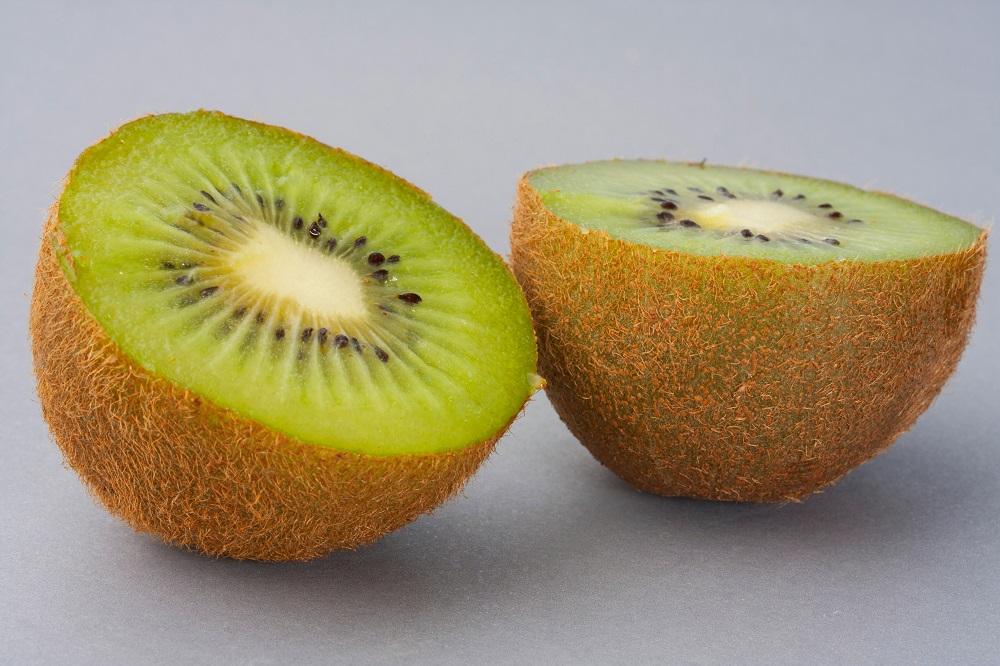
How Kiwi Supports Weight Loss
Kiwi is low in calories and high in fiber, both of which contribute to weight loss by promoting fullness and controlling appetite. The high water content in kiwis also helps with hydration and supports healthy digestion. Additionally, kiwi contains an enzyme called actinidin that can aid in the digestion of proteins, helping the body absorb nutrients more efficiently.
Delicious Ways to Enjoy Kiwi
Kiwi can be eaten on its own or added to smoothies, salads, or fruit bowls. Its sweet-tart flavor pairs well with other winter fruits like oranges and pomegranates.
7. Persimmons: A Seasonal Winter Delight
Nutritional Benefits of Persimmons
Persimmons are a sweet and nutrient-dense fruit that peak in winter. A medium persimmon contains around 120 calories, along with a good amount of fiber, vitamin C, and potassium. Persimmons are also a source of beta-carotene, an antioxidant that promotes healthy skin and eye health.

How Persimmons Support Weight Loss
Persimmons are high in fiber and water content, which help promote feelings of fullness and reduce the likelihood of overeating. The fruit is also low in fat and contains natural sugars, making it a healthier alternative to more calorie-dense winter treats. Consuming persimmons can help regulate digestion and improve metabolic function, both of which are beneficial for weight loss.
Delicious Ways to Enjoy Persimmons
You can eat persimmons raw, add them to salads, or use them in baked goods like muffins or tarts. They pair well with other winter fruits and spices like cinnamon for added flavor.
Conclusion
Winter fruits provide a wide range of delicious and nutritious options for those looking to lose weight or maintain a healthy lifestyle. Fruits like apples, pears, citrus fruits, pomegranates, cranberries, kiwi, and persimmons are not only low in calories but also high in fiber, antioxidants, and water content, all of which support digestion, curb appetite, and promote feelings of fullness. By including these fruits in your winter diet, you can enjoy seasonal flavors while working towards your weight loss goals.
